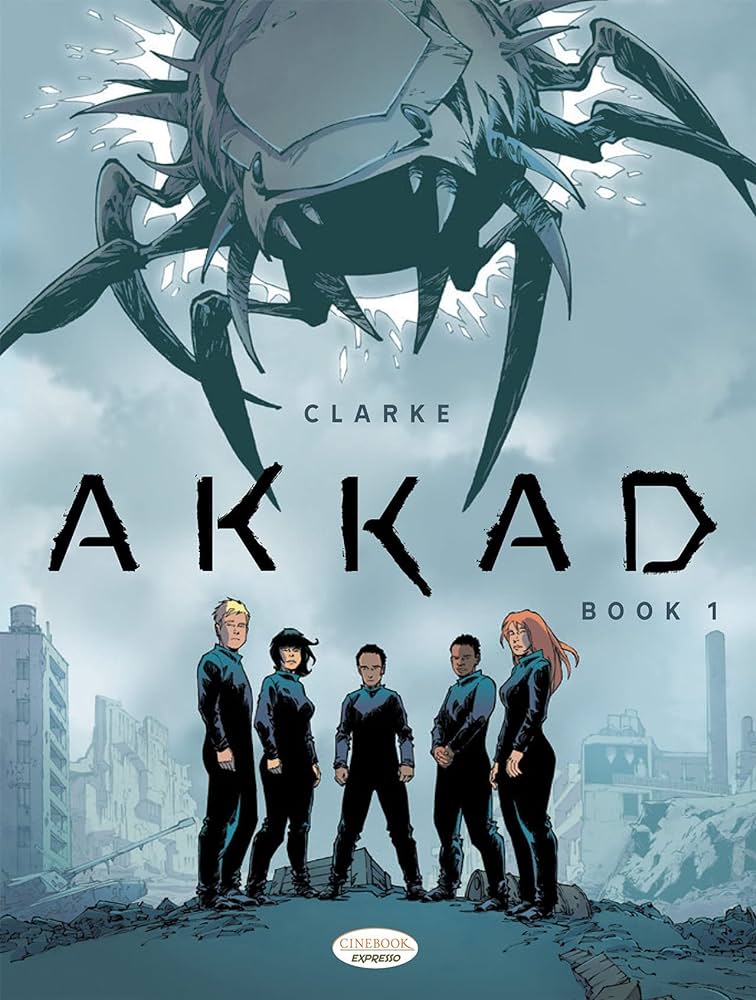Review by Roy Boyd
Akkad Book 1 is the first in a two-part series, fitting it neatly into Cinebook’s Expresso line featuring titles with one or two volumes only. This is a great idea, as you often don’t know what you’re committing to with Cinebook. Some series are limited, while others have been running forever.
Earth has been invaded by giant flea-like aliens. They appear in mid-air, take over an area and erect an impenetrable force field before effectively moving the enclosed area to their own dimension. And no, we don’t know how they do it, nor are we given anything like an explanation. The aliens don’t battle humans, and would lose if it came down to firepower. In fact, this is less an alien invasion story and more an alien infestation tale.
A group of five diverse teenagers, with only a history of light drug use in common – the plot seems to demand this of them, though it makes absolutely no sense whatsoever – are augmented, uplifted and basically pumped full of all sorts of nanotechnology and chemical crap. The hope is they will work together to come up with a solution to the alien problem.
Thinking about an alien invasion story with super-powered teens, your imagination probably goes to widescreen set pieces with kids flying around under their own steam and firing eye-lasers at alien kaiju. Well, you’d be wide of the mark, as Clarke chooses instead to tell a more character-driven piece that attempts to say something about the nature of addiction. Which is something of a shame, because while applauding taking a less-trodden path with a story that’s been done to death, the chosen path is less trodden for a reason.
The teenagers’ new abilities consist of massively boosted brainpower that turns them into human supercomputers. This might be impressive, but it doesn’t lend itself to a graphic treatment. In prose, it could be just as exciting as flashy superpowers, but this isn’t prose, and a bunch of kids solving maths problems – even really, really difficult maths problems – doesn’t make for exciting pictures.
It’s not staggeringly original, as almost every dystopian future imaginable has been explored by now, but the world building vital to a story like this is deftly handled. There’s very little exposition, and the book is admirably free of large blocks of text. Our story becomes more convoluted when geopolitics come into play. It transpires one of our players has previous with the doctor running the programme, but double-agents and the like are par for the course with this type of material, as they help to illustrate well-worn historical tensions between global players.
Kudos to mono-named Clarke – actually Frédéric Séron – for doing this all by themselves. As well as the unity of vision you’d expect from a writer/artist, one imagines they’re playing to their strengths. The artwork is reminiscent of Henry Flint, and while it rarely takes the breath away, it’s executed to a decent standard. There are lots of talking heads though. The story is picking up pace as we reach the end of this volume, and concludes in Akkad Book 2. This first volume is okay, but no more.





